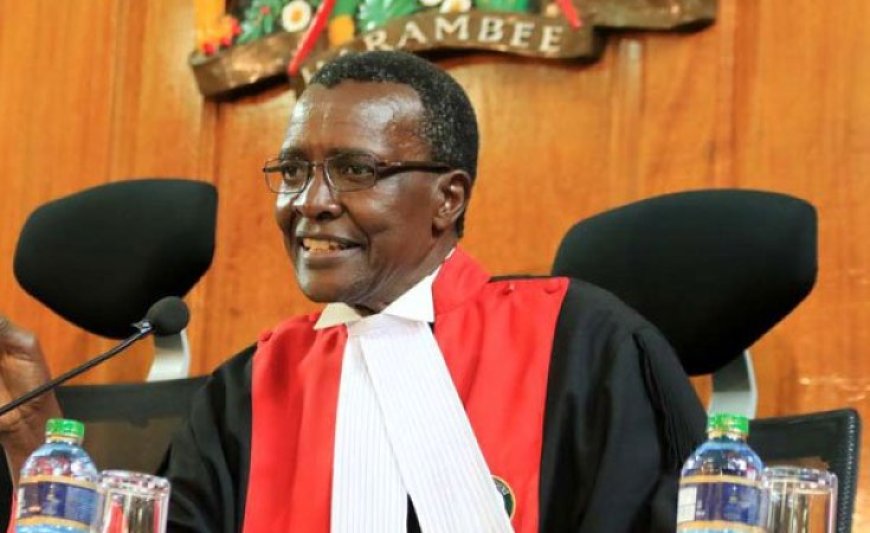Judiciary Revives Maraga's Appeal To Dissolve Parliament
The failure to enact legislation giving effect to the principle in Article 81(b), popularly known as the two-thirds Gender Rule was what motivated Maraga's appeal to the country's fourth president to dissolve the August House.

The Judiciary on Friday, August 16 announced that it will hear a series of petitions regarding a call by former Chief Justice David Maraga to retired President Uhuru Kenyatta to dissolve Parliament, reviving memories of the same in 2020 which triggered a high-stakes showdown.
In a statement, the Judiciary recounted the years 2019 & 2020, when the Hon. Chief Justice (Emeritus) received six petitions seeking advice to dissolve Parliament pursuant to Article 261(7) as read with Articles 27(3) & (8), 81(b) and 100 of the Constitution of Kenya.
The failure to enact legislation giving effect to the principle in Article 81(b), popularly known as the two-thirds Gender Rule was what motivated Maraga's appeal to the country's fourth president to dissolve the August House.

A building housing the Judiciary. /FILE
"The Hon. Chief Justice (Emeritus) gave an Advisory Opinion to His Excellency the President on September 21, 2020, advising the President to dissolve Parliament for failure to enact legislation required to implement the two-thirds gender representation principle.
"That Advisory Opinion was challenged at the High Court vide Petitions No. E291 of 2020 consolidated with Petitions Nos. E300, E302, E305, E314, E317, E337, E228 & E229 all of 2020 and JR No. E1108 of 2020," the statement in part.
A 5-Judge bench of the High Court was reconstituted on July 31, 2024, to determine the consolidated petitions on a priority basis.
The bench consists of Justices Jairus Ngaah (Presiding), Lawrence Mugambi, Patricia Nyaundi, Moses Otieno and Tabitha Ouya Wanyama.
In new developments, the Judiciary announced that in front of the five judges, the matter will be mentioned before the full bench on September 24, 2024.
It is a move that now puts at risk the futures of members of the 13th Parliament, including those at the National Assembly at the Senate.
In 2020, in his advice to the former President, Maraga explained that the mechanism for the dissolution of Parliament, irrespective of the consequences, was the radical remedy that Kenyans desired to incentivise the political elites to adhere to and fully operationalise the transformational agenda of the Constitution.
"Let us endure pain if only to remind the electorate to hold their parliamentary representatives accountable," Maraga said then.
According to Maraga, Article 261 (1), read together with the Fifth Schedule, provides that the enactment of the two-thirds gender principle was among the things Parliament was to do within five years after the promulgation of the Constitution in 2010, a matter which was left unresolved for more than 10 years.
“There is no doubt the dissolution of Parliament will cause inconvenience and even economic hardship. The fact that Kenya is in the midst of the coronavirus pandemic only exacerbates the potential impact of the decision.
"Yet that is the clear result Kenyans desired for Parliament’s failure to enact legislation they deemed necessary. We must never forget that more often than not, there is no gain without pain,” Maraga added.
The 13th Parliament is facing turbulence in 2024 and following the invasion of June 25, calls to have it dissolved based on recent events surrounding the anti-Finance Bill protests that have underscored an urgent crisis in Kenya's political environment, have been rampant.
Under Article 261(7) of the Kenyan Constitution, the President has the authority to dissolve Parliament if it fails to fulfil its constitutional mandate.







